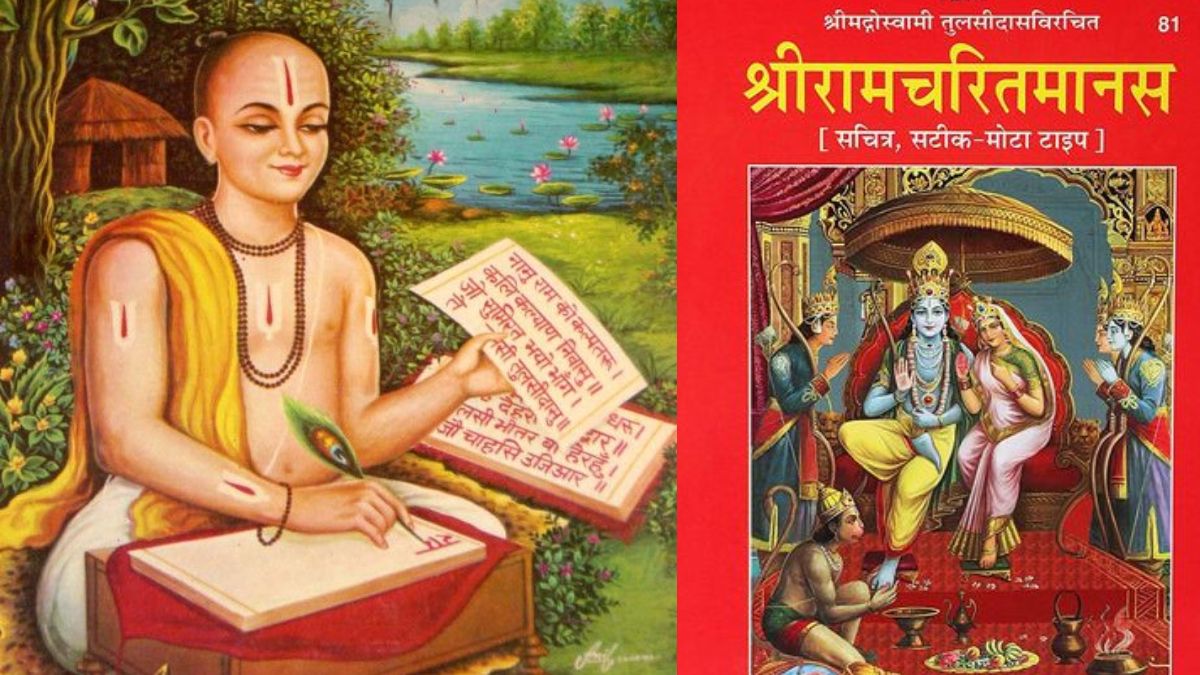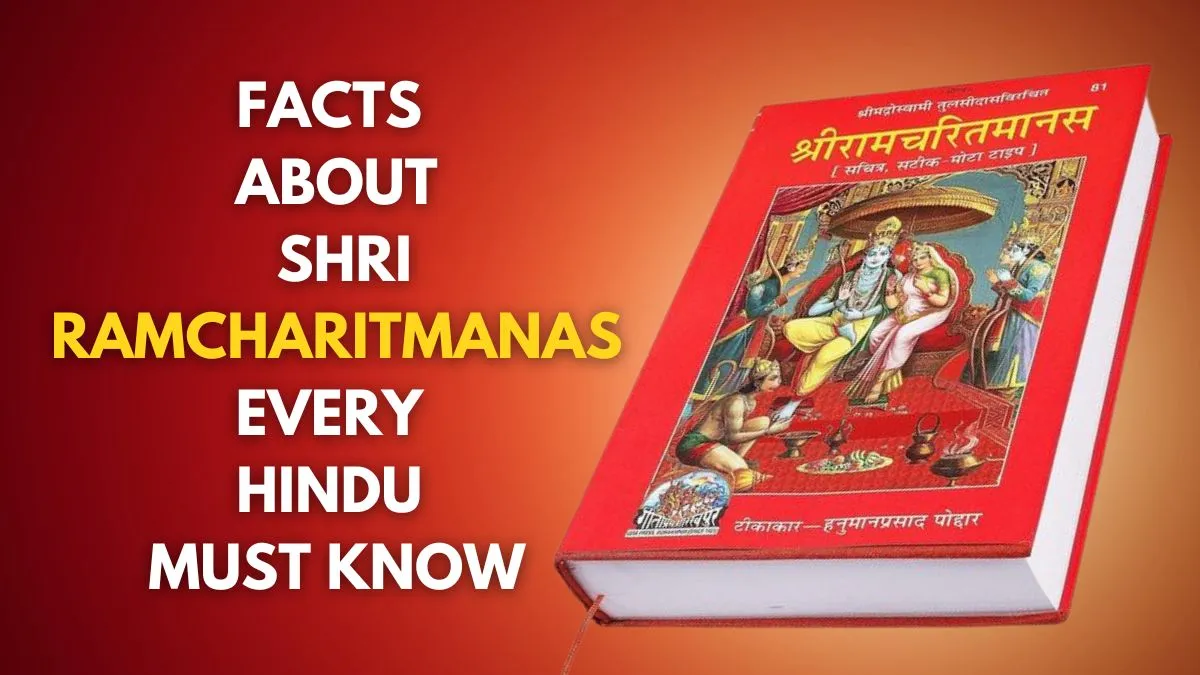- By Kashish Rai
- Fri, 29 Mar 2024 11:09 AM (IST)
- Source:JND
Saint Tulsidas wrote the epic Ramcharitmanas in the 16th century using the Awadhi language, adapting the ancient Ramayana narrative with the needs of the next generation in mind. The Valmiki Ramayana is neither exactly duplicated in the Ramcharitmanas, nor is it a shortened version of the latter. The Ramcharitmanas incorporates stories from Puranic tales, several Indian languages, and numerous other Sanskrit-language Ramayanas.
Let us check out 7 interesting facts every Hindu must know about Ramcharitmanas further.
7 Interesting Facts About Ramcharitmanas That Every Hindu Must Know
1. 7 Kandas In Ramcharitmanas
The composition was written in seven Kandas by Tulsidas. These are known as Uttar Kanda, Bala Kanda, Ayodhya Kanda, Aranya Kanda, Kishkindakand, Sundar Kanda, and Lanka Kanda. The primary distinction between the Ramacharitmanas and the Valmiki Ramayana is that Saint Tulsidas wrote the sixth chapter under the title Lanka Kanda rather than Yuddh Kanda.

Another name for the epic poetry Ramcharitmanas is Tulsikrit Ramayana, or Tulsidas' Ramayana. (Image Source: Jagran English)
2. The Reality Of Ravana Explained By Tulsidas Ji
Most people are aware that Ravana was the ruler of Lanka, but very few are aware that Kuver, Ravana's half-brother, was the real ruler of Lanka. Ramcharitmanas states that Kuver was a devotee of Shiva as well. After seeing his penance, Shiva bestowed upon him Lanka, which Ravana ultimately prevailed over Kuver in their battle. Ravana was a devoted follower of Lord Shiva as well. As a sign of his extreme penance, Ravana severed his head and offered it as a sacrifice to Shiva. Because of his devotion, Lord Shiva bestowed ten heads onto Ravana; this is how he came to be known as Dashanan, the one with ten heads.
3. Composition Of Shri Ramcharitmanas
In the Ramcharitmanas, the word Ram appears 1443 times. In the Ramcharitmanas, the words Sita and Janaki occur 147 and 69 times, respectively. There are 51 instances of the term Baidehi and 35 instances of Temple. Comparably, Ramcharitmanas has 27 verses, 4608 Chaupais, and 1074 Dohas. The longest chapter in this epic is Balakanda, while the shortest is Kishkindhakand.
4. Difference Between Ramayana And Ramcharitmanas
The narratives concerning Lord Rama are told in two distinct ways in the Sanskrit and Awadhi languages: the Ramcharitmanas and the Ramayana. Regarding composition, religious importance, and other aspects, there are some distinctions between them as well as variations in the type of poetry utilised. The holy Valmiki is the author of the Ramayana. It is regarded as the first book of elaborate poetry or Adi Kavya. The first work of Valmiki serves as the basis for Ramcharitamanas.
5. Lord Rama’s Sister
The four brothers Rama, Lakshmana, Bharata, and Shatrughan had an elder sister called Shanta. King Dasharatha handed Shanta, the oldest daughter of Kaushalya and Dasharatha, to King Rompad of Angadesh when she was a little girl for an undisclosed cause. Shanta was raised by King Rompad and his childless wife Varshini, who had made a playful request for a child when visiting Ayodhya. As promised by King Dasharatha, Shanta became the princess of Angadesh.
6. The Vision Of Saint Tulsidas
In several of his writings, Tulsidas states that he had direct glimpses, or darshan, of Lord Hanuman, Lord Rama-Lakshman, and Shiva-Parvati. Tulsidas discovered a saint in Kashi during his travels, and the monk gave him Hanuman's location. He was fortunate to encounter Lord Rama in a vision after meeting Hanuman. Tulsidas, however, was unable to identify Lord Rama when he bestowed darshan upon him. When Lord Rama paid Tulsidas another visit on the day of Mauni Amavasya, Hanuman assisted him in recognising Lord Rama.
7. Story Of Meghnath
The Ramcharitmanas tell the story of Meghnad, the son of Mandodari and King Ravana. He was renowned for his extraordinary fighting prowess, and his name means "one whose speech was like thunder." Meghnad was feared for his valour and was the most formidable fighter in Lanka's army. He even vanquished Indra, the ruler of the gods, and was given the moniker Indrajit. He was given a prophecy that the person who hadn't slept in 14 years would kill him. Lakshman Ji is also known as Gudakesh since he didn't sleep for fourteen years. Consequently, Lakshman Ji killed Meghnath.

